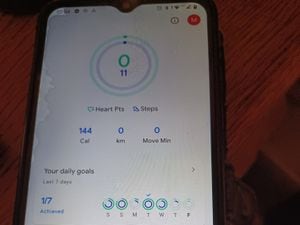Dozens of patients reported missing from mental health hospitals in last two years
Dozens of patients have gone missing from mental health hospitals run by a Midlands NHS trust in the last two years, figures show.

The NHS figures relate to Midlands Partnership NHS Foundation Trust (MPFT), which provides physical and mental health care, learning disability and adult social care services across Shropshire, Telford & Wrekin, Staffordshire and Stoke-on-Trent.
Mental health charity SANE said it was increasingly concerned at the number of patients absconding from facilities, and blamed years of 'relentless cuts' for creating appalling conditions on wards.
The figures show that 85 patients who had been sectioned under the Mental Health Act went AWOL – absent without leave – from MPFT between April 2017 and March 2019.
A patient is defined as AWOL if they leave the facility they are detained in without permission, or fail to return after being allowed out on temporary leave.
Paul Bowers, head of operations for MPFT which manages The Redwoods Centre in Shrewsbury, said the figures published by NHS Digital relate to all inpatient wards provided by the trust, including The Redwoods Centre, St George’s Hospital in Stafford and the George Bryan Centre in Tamworth.
Risks
He said: “Patients leave wards for various reasons and when they do, our overriding concern is the safety of the patient, their family or carer and the public.
“When someone is admitted to one of our wards, we work with them to create a care plan. This will take account of their concerns and identify any potential risks of absconding.
“We provide therapeutic and engaging activities on our wards to minimise the risk of it happening and if it does we explore the reasons to lessen the likelihood of it happening again.
“We also have a policy that includes details of the searches we undertake when someone goes missing. This includes involving our community teams and the police, as appropriate.”
Marjorie Wallace, chief executive of SANE, said absences among sectioned patients could lead to an increased risk of suicide.
She said: “We are increasingly concerned at the number of patients across the country that go missing for one reason or another, particularly those who become acutely ill without their medication and who can become a risk to themselves and others.
"We need urgent action to prevent patients going absent, or we risk an increase in suicides amongst this group.”
Across England, the number of incidents increased by 4.4 per cent over the two years, from 3,316 in 2017-18 to 3,462 in 2018-19.
Safety
Of the patients that went missing over the two-year period, 10, or 12 per cent, returned voluntarily, while another 10 were taken into custody.
Across England, 11 patients died whilst AWOL over the two-year period.
Alison Cobb, specialist policy advisor at the charity Mind, said it was difficult to draw definitive conclusions from the figures.
However, she said that the Mental Health Act is used in a way that fails to treat people with dignity and respect.
"Hospital wards can be stark and inhospitable, and when people are sectioned they are sometimes subject to unnecessary restrictions and practices such as physical restraint, seclusion or forced medication," she said.
"When someone is in hospital with a mental health problem, they are very unwell and need to be in a safe, therapeutic environment until they have recovered sufficiently to be discharged.
"Mental health services have a responsibility to ensure the safety of those in their care and any failings, including people absconding, should be thoroughly investigated."
An NHS spokesman said an extra £2.3 billion was being invested in mental health services as part of the NHS Long Term Plan.
The money will go towards making sure inpatient facilities are properly resourced as well as early interventions for patients to prevent problems escalating.
He added: "The Government is rightly reviewing the Mental Health Act to protect some of the most vulnerable people in our society."





